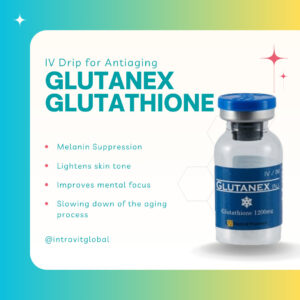How Dehydration Can Cause Anxiety
Table of Contents

How Dehydration Can Cause Anxiety and How We Can Cure It by Vitamin IV Drips
Introduction
Anxiety is a common mental health condition that affects millions of people worldwide. While many factors can contribute to anxiety, one lesser-known but significant cause is dehydration. Yes, you read that right—being dehydrated can mess with your mental state, leading to or exacerbating anxiety symptoms. In this article, we will explore how dehydration can cause anxiety and how you can potentially alleviate these symptoms through Vitamin IV drips.
Understanding Dehydration
What is Dehydration?
Dehydration occurs when your body loses more fluids than it takes in, leading to a deficit that can disrupt various bodily functions. This fluid imbalance can be caused by several factors, including not drinking enough water, excessive sweating, or illnesses like vomiting and diarrhea. Most people associate dehydration with physical symptoms, but its impact on mental health is equally significant.
Common Symptoms of Dehydration
The symptoms of dehydration vary depending on the severity but generally include dry mouth, fatigue, dizziness, and dark urine. However, when it comes to mental health, dehydration can also cause confusion, irritability, and even heightened anxiety. These symptoms can often be mistaken for other issues, making it crucial to recognize the role of hydration in maintaining mental well-being.
The Link Between Dehydration and Anxiety
How Dehydration Affects the Brain
Your brain is about 75% water, so it’s no surprise that dehydration can seriously affect how it functions. Water is essential for the brain to produce hormones and neurotransmitters, including those that regulate mood. When you’re dehydrated, your brain has to work harder to function properly, which can lead to feelings of stress and anxiety.
Dehydration and Stress Hormones
When your body is dehydrated, it goes into a state of stress. This triggers the release of cortisol, a hormone that is directly linked to stress and anxiety. Elevated cortisol levels can lead to mood swings, irritability, and, in severe cases, anxiety disorders. Essentially, dehydration creates a physiological environment that is ripe for anxiety to thrive.
Dehydration-Induced Anxiety
The physiological effects of dehydration can manifest as anxiety. When your body lacks sufficient water, it can affect blood flow, leading to decreased oxygen supply to your brain. This can cause dizziness, confusion, and panic—all symptoms that can be mistaken for anxiety. Over time, chronic dehydration can even contribute to more persistent anxiety disorders.
Why Hydration is Crucial for Mental Health
Water and Neurotransmitter Production
Neurotransmitters like serotonin and dopamine play a significant role in regulating mood and preventing anxiety. Hydration is essential for the production and function of these neurotransmitters. Without adequate water, your body struggles to maintain the necessary chemical balance, leading to potential mood disturbances and increased anxiety.
Balancing Electrolytes for Mood Stability
Electrolytes, such as sodium, potassium, and magnesium, are crucial for nerve function and mood stability. Dehydration can lead to an imbalance of these electrolytes, disrupting your nervous system and contributing to anxiety. Staying hydrated helps maintain this balance, ensuring that your nerves can function properly and keep anxiety at bay.
Preventing Anxiety Through Proper Hydration
One of the simplest yet most effective ways to prevent anxiety is by staying properly hydrated. Drinking enough water each day supports your body’s overall function and helps regulate mood. For those who struggle with chronic anxiety, maintaining hydration can be a critical component of managing their symptoms.
Vitamin IV Drips as a Solution
What are Vitamin IV Drips?
Vitamin IV drips are a form of intravenous therapy that delivers a cocktail of vitamins, minerals, and other nutrients directly into your bloodstream. This method bypasses the digestive system, allowing for 100% absorption of the nutrients. IV drips are often used for hydration, immune support, and, increasingly, mental health management.
How Vitamin IV Drips Work
During a Vitamin IV drip session, a healthcare provider inserts a small tube into your vein, through which the nutrient-rich solution is administered. The process usually takes about 30 to 60 minutes, and the effects can be felt almost immediately. Because the nutrients are delivered directly into your bloodstream, they can quickly start working to hydrate your body and support your mental health.
Nutrient-Rich IV Drips for Anxiety Relief
Certain vitamins and minerals are particularly effective in combating anxiety. IV drips that contain magnesium, B vitamins, vitamin C, zinc, and glutathione can help reduce anxiety symptoms by replenishing the body’s stores of these essential nutrients. The direct delivery method of IV drips ensures that these nutrients are absorbed quickly, offering faster relief from anxiety.
Benefits Over Oral Hydration and Supplements
While drinking water and taking oral supplements are essential for maintaining hydration and overall health, they aren’t always enough, especially if you’re already dehydrated or experiencing severe anxiety. Vitamin IV drips offer a more efficient solution by ensuring that your body gets the hydration and nutrients it needs in the most effective way possible. This can be particularly beneficial for those who struggle with anxiety linked to dehydration.
Key Vitamins and Minerals in IV Drips for Anxiety
Magnesium
Magnesium is known for its calming effect on the nervous system. It helps regulate neurotransmitters that send signals to the brain, making it a crucial component in reducing anxiety. Magnesium deficiency has been linked to increased anxiety, and receiving it through an IV drip can provide rapid relief.
B Vitamins
B vitamins, especially B6 and B12, are essential for energy production and stress management. They help convert food into energy and play a vital role in maintaining brain health. B vitamin deficiencies can lead to mood disorders, including anxiety. An IV drip that includes B vitamins can help restore these levels quickly.
Vitamin C
Vitamin C is a powerful antioxidant that helps reduce oxidative stress in the body. High levels of oxidative stress can contribute to anxiety and other mental health issues. By delivering vitamin C directly into the bloodstream, IV drips can help reduce stress and support mental health.
Zinc
Zinc is another essential mineral that impacts neurotransmitter function and brain health. Low levels of zinc have been associated with mood disorders and anxiety. Including zinc in a Vitamin IV drip can help stabilize mood and reduce anxiety symptoms.
Glutathione
Glutathione is a potent antioxidant that plays a critical role in reducing oxidative stress and supporting overall brain health. Its inclusion in IV drips can enhance the body’s ability to manage anxiety and other stress-related conditions.
The Process of Getting a Vitamin IV Drip
What to Expect During the Treatment
Getting a Vitamin IV drip is a straightforward process. You’ll start by consulting with a healthcare provider who will assess your needs and determine the best nutrient mix for you. Once that’s done, a small tube is inserted into your vein, and the IV drip is administered over 30 to 60 minutes. You can relax, read, or even take a nap during the session.
Duration and Frequency of Treatment
The effects of a Vitamin IV drip can last for several days to a few weeks, depending on the individual and the nutrients administered. For ongoing anxiety management, treatments might be recommended every two to four weeks. However, this can vary based on your specific needs and the severity of your symptoms.
Possible Side Effects and Considerations
While Vitamin IV drips are generally safe, they can cause some side effects, such as bruising at the injection site, lightheadedness, or a slight fever. It’s important to discuss any pre-existing health conditions with your provider to ensure that IV therapy is safe for you.
Who Can Benefit from Vitamin IV Drips?
Individuals with Chronic Dehydration
People who suffer from chronic dehydration, whether due to lifestyle, medical conditions, or other factors, can greatly benefit from Vitamin IV drips. The rapid hydration provided by these drips can alleviate dehydration-related anxiety and improve overall well-being.
Those with High-Stress Levels
If you lead a high-stress lifestyle, whether due to work, personal issues, or other factors, you might find that Vitamin IV drips help manage stress and anxiety. The combination of hydration and essential nutrients can make a significant difference in how you cope with stress.
Athletes and Active Individuals
Athletes and those who are physically active are at a higher risk of dehydration, which can affect both physical and mental performance. Vitamin IV drips can help maintain hydration and electrolyte balance, reducing the risk of anxiety and other mental health issues.
Lifestyle Tips to Complement Vitamin IV Therapy
Daily Hydration Habits
To complement the effects of Vitamin IV therapy, it’s important to maintain good daily hydration habits. Aim to drink at least eight glasses of water a day, and more if you’re active or live in a hot climate. Carrying a water bottle with you can help ensure you stay hydrated throughout the day.
Balanced Diet for Anxiety Prevention
A balanced diet rich in fruits, vegetables, whole grains, and lean proteins can also help prevent anxiety. Foods high in water content, like cucumbers, oranges, and strawberries, can contribute to your hydration levels, while nutrient-dense foods support overall mental health.
Mindfulness and Stress Management Techniques
Incorporating mindfulness practices, such as meditation, deep breathing exercises, and yoga, can further help manage anxiety. These practices, combined with proper hydration and Vitamin IV therapy, can create a holistic approach to mental health.
Conclusion
Dehydration is a surprising yet significant contributor to anxiety, affecting the brain and body in ways that can lead to heightened stress and anxiety symptoms. Staying properly hydrated is crucial for mental health, and Vitamin IV drips offer a powerful solution for those struggling with dehydration-induced anxiety. By delivering essential nutrients directly into the bloodstream, IV drips provide rapid relief and help restore balance in the body. Whether you’re dealing with chronic dehydration, high-stress levels, or an active lifestyle, Vitamin IV drips can be a valuable tool in managing anxiety and improving overall well-being.
FAQs
Can mild dehydration cause anxiety?
Yes, even mild dehydration can lead to anxiety by affecting brain function and increasing stress hormone levels.
How quickly can a Vitamin IV drip relieve anxiety symptoms?
The effects of a Vitamin IV drip can be felt within 30 minutes to an hour after administration, providing quick relief from anxiety symptoms.
Are there any risks associated with Vitamin IV drips?
While generally safe, Vitamin IV drips can cause side effects like bruising, lightheadedness, or slight fever. It’s important to consult with a healthcare provider before starting treatment.
How much water should I drink daily to prevent anxiety?
It’s recommended to drink at least eight glasses of water daily, but this can vary depending on factors like activity level and climate.
Can I use Vitamin IV drips as a long-term solution for anxiety?
Vitamin IV drips can be part of a long-term strategy for managing anxiety, but they should be used in conjunction with other treatments and lifestyle changes for the best results.
-
Vitamin Drips
Glutanex Glutathione 1200mg IV Drip for Antiaging, Melanin Suppression, Antioxidant Skin Brightness Benefits
£20.00 – £120.00 Select options This product has multiple variants. The options may be chosen on the product pageRated 0 out of 5 -
Vitamin Drips
Asconex Vitamin C (Ascorbic Acid) IV Drip for Antiaging, Melanin Suppression, Antioxidant and Skin Brightness Benefits
£10.00 – £70.00 Select options This product has multiple variants. The options may be chosen on the product pageRated 0 out of 5 -
Vitamin Drips
Kosdaq Vitamin D 300000 IU Cholecalciferol per vial box of 10 ampoules
£20.00 – £140.00 Select options This product has multiple variants. The options may be chosen on the product pageRated 0 out of 5
Checkout our Facebook Page and leave your review about our Health Care Products.






